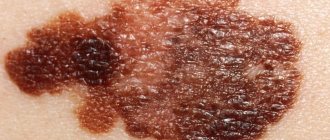Lydia Rogova
When we are healthy, we all easily give good advice to the sick.
calendar_today
March 12, 2017
visibility
The main reasons why itching occurs at the entrance to the vagina. What to do if the vaginal area itches and redness appears.
Constantly disturbing itching at the entrance to the vagina is an ambiguous symptom. Its presence may mean an allergic reaction to some external irritant or become a primary sign of some internal pathology. With constant scratching of the irritated area, itching in the vaginal area can itself become the cause of an infectious disease.
Itching in the vagina: causes and treatment
Itching, during which there is no discharge, can bother almost any woman: from adolescence to adulthood. If a woman is completely healthy in terms of intimacy, she does not have such problems. But, if they occur, this may indicate that the woman needs urgent medical attention.
As a rule, women experience this disease for many reasons. But the main provocateurs are still considered:
- Diabetes. A disease that affects insulin levels. This pathology can cause a negative reaction throughout the body. The list of these reactions includes itching.
- Due to improper personal hygiene. Lack or excess of care very often causes redness in the intimate area and itching
- Due to injury. Any disorders that affect the mucous membrane or skin also cause discomfort in the genital area
Often, external stimuli can be provocateurs of this deviation:
- Underwear. Wearing underwear made of synthetic material that is inappropriate in size injures the epidermis and mucous membranes of the skin.
- Changes in temperature. An unexpected decrease or increase in ambient temperature can reduce the membrane quality of the vagina.
- Incorrectly selected medications or contraceptives, as well as hygiene products, cause itching.
- Preparations intended for intimate hygiene. The use of bad or inappropriate products provokes sensitization.
If you are faced with this problem and want to get rid of it forever, be sure to visit a doctor. But before that you need to follow these rules:
- Do not use any medications 3 days before taking them, do not use suppositories, sprays, or douche.
- Don't get intimate
- Do not use personal hygiene products
The night before your visit to the doctor, wash your genitals with warm water. For this you can only use baby soap.
Treatment of such a disease is carried out individually and may depend on the reasons that provoked its occurrence.
- If you have an infection, then you may be prescribed a topical or systemic antimicrobial drug.
- In the presence of a fungal disease, antifungal drugs are usually prescribed.
- For allergies, doctors prescribe a sedative or antihistamine. They also prescribe medications that relieve inflammation and itching. If necessary, the doctor may prescribe therapy using hormonal medications, treatment from other doctors, or physical therapy.
What research needs to be done?
As a rule, gynecological smears are taken for flora and cytology. Next, the doctor may prescribe PCR tests, bacteriological culture for flora, clinical blood and urine tests, as well as blood glucose testing. This is the minimum that everyone who is bothered by vaginal itching usually goes through. If necessary, additional studies may be prescribed, such as pelvic ultrasound, blood tests for hormones and allergens, colposcopy, biochemical blood tests and testing for the presence of helminthic infestations.
Having completed all the necessary studies, the doctor will know the true cause of the discomfort and, based on this, will prescribe adequate treatment.
Itching and burning in the vagina
Burning and itching are considered symptoms of almost any infection. Diseases arising from opportunistic microorganisms (if their numbers are normal) do not cause discomfort. But, if factors appear that provoke their rapid reproduction, then inflammation occurs. These factors include:
- Candidiasis. An inflammatory process caused by the yeast fungus Candida. Popularly, women are accustomed to calling this disease thrush. In addition to itching with burning, the disease is characterized by discharge in the form of white curd grains.
- Colpitis. The disease occurs due to E. coli or coccus infection. As a rule, the burning sensation becomes stronger before the menstrual cycle.
- Venereal disease. For example, gonorrhea, chancroid.
- Chlamydia. It can often be chronic.
- Trichomoniasis. A disease that is characterized by an unpleasant odor of discharge in the form of greenish or yellow-greenish foam.
- Herpes. In addition to itching, the disease is manifested by rashes, burning and pain.
- Condylomas on the genitals. A viral disease that appears in the form of growths or condylomas. It is caused by papilloma.
- Stress. One of the main reasons is a nervous breakdown, a depressive state, which also often causes itching and burning.
- Diseases of the thyroid gland and kidneys. Disturbances in the functionality of the thyroid gland and kidney disease affect the body, as a result of which an unpleasant sensation in the form of itching often appears.
- Cystitis. This disease is considered common among many women. Basically, it is combined with some other diseases, for example, candidiasis.
Main reasons
All causes of these symptoms can be divided into 3 groups:
- gynecological;
- associated with pathologies of other organs and systems;
- caused by special conditions of the female body and defects in care.
Gynecological
This group of diseases combines inflammatory and infectious lesions of the genitals and urinary system, which in women are very closely interrelated: inflammation often passes from the urinary tract to the vagina and vice versa.
The following problems can lead to itching and burning:
1. Sexually transmitted diseases: these infections are the most common causes of vaginal burning. It is this symptom that forces a woman to pay attention to the condition of the genital organs and consult a doctor. Such infections include: gonorrhea, syphilis, chlamydia, ureaplasmosis, trichomoniasis, donovanosis, genital herpes and others. The external genitalia do not itch very much; the itching tends to increase over time. The disease is accompanied by discharge with an unpleasant odor from the genital tract.
2. Candidiasis: also a very common cause of severe itching in the vagina. Fungi cause unbearable discomfort, patients cannot sleep normally or even go to the toilet, the itching begins to bother them sharply and has a constant rhythm. Candidiasis is caused by yeast-like fungi and often occurs after a decrease in immunity, after a course of antibiotics and before the onset of menstruation.
3. Bacterial vaginosis: this pathology is associated with a violation of the microflora in the vagina. At first, the disease occurs latently in the form of dysbacteriosis, when the number of beneficial bacteria in the genitals decreases. If pathogenic and opportunistic microorganisms begin to multiply, women experience severe itching and a burning sensation that has a burning character. Vaginosis is accompanied by purulent vaginal discharge and pain during sexual intercourse.
4. Vulvitis is an inflammation of the vulva, which is part of the soft tissue of the entrance to the vagina. The vulva can cause discomfort due to injury, as part of an allergic reaction to latex or personal hygiene products, as well as in the form of manifestations of pathologies of the internal genital organs due to hormonal imbalance.
5. Urethritis - inflammation of the urethra in women occurs with a feeling of itching and burning in the vagina. Urethritis often progresses to the entrance to the external genitalia and deeper, and also causes the spread of nervous excitation of neurons due to the extensive cross nerve tracts of the urethra and vagina. Itching worsens with urination, which can be painful. The nature of urine also changes.
All diseases of the genital area that lead to the development of such symptoms are in one way or another associated with the state of the protective properties of the vaginal mucosa and often develop with decreased immunity and hormonal imbalance, as well as as part of infection with pathogenic pathogens. But with a strong immune system, you may not even get an STI after the first contact.
Somatic pathologies
Somatic diseases are pathologies of other organs and tissues. They lead to the formation of itching and burning due to general trophic, that is, nutritional disorders of the membranes. Often these diseases are associated with insufficient blood circulation in the pelvis and a general disorder of metabolism and immune response. These include:
- diabetes;
- tumors in the pelvis, compressing the feeding vessels;
- autoimmune diseases accompanied by atrophy of the mucous membranes - scleroderma, psoriasis, systemic lupus erythematosus, Sjogren's disease and syndrome;
- enterobiasis is a parasitic disease that is caused by roundworm; it crawls out of the anus at night and causes severe irritation of surrounding tissues;
- renal failure - itching is associated with irritation by toxic products of urates and urea;
- liver failure - a burning sensation develops due to an increase in ammonia compounds in the blood;
- tumors of the genital organs and excretory system;
- oncological hematological diseases;
- neuroses - a group of deviations develops with normal anatomy and physiology of the external genital organs, the problem is “in the head”, manifested by vaginal itching, which is of variable nature and intensity and does not respond to standard therapy.
Special conditions and causes
This group of factors can hardly be called pathological, since they are natural periods or manipulations in a woman’s life. But under certain conditions, these reasons can lead to itching and burning. This happens when:
- pregnancy - changes in hormonal levels lead to changes in the condition of the mucous membrane, which begins to become irritated and itchy; these patients more often develop disorders of the vaginal microflora;
- ovulation - changes in hormones in the blood also contribute to the rapid formation of itching and burning;
- menopause - this condition of a woman’s body is characterized by a decrease in estrogen levels and dry mucous membranes, so patients in menopause more often suffer from irritation and itching in the vagina;
- sexual intercourse - lack of lubrication and microtrauma lead to inflammation of the mucous membrane and unpleasant symptoms in the vagina immediately after sex, itching is also observed if you are allergic to latex or artificial lubricant;
Frequent use of tampons, panty liners and tight synthetic underwear leads to disruption of the microclimate of the skin and mucous membranes and an inflammatory reaction;
Constant use of aggressive intimate hygiene products, as well as frequent douching, lead to a decrease in the epithelium in the vagina and severe itching of an allergic and inflammatory nature.
Severe itching in the vagina
Severe itching may occur due to inflammation. The following pathologies are identified that provoke the appearance of such a problem:
- Cervicitis. Inflammation of the vagina and cervix. There are 2 different types of this disease: endocervicitis and exocervisitis. The main symptoms are: cloudy discharge, pain in the lower abdomen, pain during urination. As a rule, the chronic form of the disease leads to erosion. The causative agents are many microorganisms, for example, E. coli, fungi. For treatment, doctors prescribe an antibacterial or antiviral agent.
- Endometritis. Inflammation of the uterine mucosa. Most often caused by staphylococcus, E. coli and other similar microorganisms. Main symptoms: discharge with blood and pus, high body temperature. The disease is treated with antibiotics.
- Urethritis. Inflammatory disease of the urethral mucosa. Symptoms of the disease: pain, severe itching, discharge in the form of pus, redness of the genitals.
- Kraurosis of the vulva. The main symptoms: paresthesia, severe itching, changes occurring in the vaginal opening. It is treated with local and general hormonal therapy, physiotherapy, and vitamin therapy.
- Urogenital fistula. The disease very often begins after the birth of a child, after a cesarean section. With this disease, inflammation occurs due to the fact that urine affects the urethra during passage.
- The tumor is benign or malignant.
conclusions
Itching and burning in the vagina are signs of many pathological processes both in the genital organs and in other body systems. Most often, this symptom accompanies a decrease in immunity and the development of inflammatory and infectious pathologies in the vagina.
Diagnosis requires a comprehensive examination with determination of the type of pathogen and its sensitivity, if necessary.
We must not forget about somatic diseases, as well as violations of hygiene and lifestyle. For treatment, local medications in the form of suppositories and ointments are often used to eliminate dryness and burning. For infections, antibiotics are indicated according to the pathogen.
Interesting articles:
- Causes of elevated leukocytes on a smear on vaginal flora.
Itching and vaginal discharge
Any representative of the fair half has discharge, and this is usually normal. However, such secretions have no odor at all. There is a slight, unusual odor, but it is minor.
If the discharge begins to change its smell, then this indicates that the woman has begun to develop some kind of infection in the vagina. Such discharge can be physiological (considered normal) and pathological. Mostly the discharge is accompanied by itching.
The itching is minor, noticeable only when urinating or during intimacy. Itching is felt strongly at night, since at this time some parts of the brain stop functioning, which means sensitivity increases.
Discharge and severe itching may indicate the presence of inflammation, which can occur on the vaginal mucosa or on the genitals. Such inflammation is caused by many infectious diseases that are transmitted after sexual contact, appear due to dysbacteriosis or poor hygiene.
The list of reasons for this process is quite long. Hence, if you find this problem, try to find out the root cause and then make sure to visit a doctor.
Diagnostics
To diagnose all possible causes, you should consult a gynecologist and therapist. Before your visit, you should pay attention to the following points:
- connection of itching with a certain situation (sexual intercourse, change of partner, hormonal changes);
- the nature and amount of vaginal discharge - changes in color, smell and quantity indicate a pronounced pathological process in the genitals;
- sensations when urinating - whether the itching intensifies, pain or blood appears in the urine;
- sensations during sexual intercourse - pain, tension or irritation;
- use of intimate hygiene products.
Before examination by a gynecologist, you should wash yourself with warm, clean water and wipe the perineal area dry. For 2-3 days you should refrain from sexual intercourse and the use of any personal intimate hygiene products, as well as alcohol, hot and spicy foods, in order to exclude their influence on the diagnosis. Underwear should be soft, loose and made from natural fabrics.
What examinations are carried out?
To find out the cause of itching and burning, the following procedures may be prescribed:
- taking a smear from the vagina for flora and cytology;
- examination of the vagina in the speculum;
- smear from the cervical canal and urethra with culture and sensitivity testing (often combined with a smear from the vagina);
- Ultrasound of the pelvis and genitals;
- pregnancy test;
- serological blood test for the main pathogens of STIs.
As part of diagnosing diseases of other organs, it is useful to do:
- general urinalysis and urine culture, Nechiporenko analysis;
- biochemical blood test;
- blood test for sugar, glycated hemoglobin, glycemic profile to exclude diabetes mellitus;
- Ultrasound of the abdominal cavity and kidneys;
- blood smear for suspected hematological oncology.
These examinations will be prescribed by a therapist, while the first group of measures can only be carried out by an obstetrician-gynecologist. Before visiting this doctor, you need to determine the day of your cycle and prepare according to the specified plan.
A visit to a therapist does not require specific preparation: you just need to remember that blood tests are taken on an empty stomach, and to donate urine you need to wash yourself thoroughly and take a medium portion. On the eve of laboratory tests, it is better to refrain from physical activity, but this does not apply to intimate life.
Vaginal itching without discharge
Itching, not accompanied by discharge, occurs in almost every woman, regardless of age. This is considered normal, but if there is no discomfort or irritation. If you have such signs, then immediately go to the doctor.
The feeling of itching in this case develops for the following reasons:
- Hormonal imbalance associated with background instability. In this case, the barrier protection functions are weakened, endocrine disruptions appear, characterized by discomfort in the vagina.
- Atrophy of the vaginal epidermis. The regeneration of cells fades away, which begin to age faster. As a result, excessive dryness of the skin, irritation and stenosis of the mucous membrane occurs. During these changes, the production of glandular secretion inside decreases, sensitivity increases, and the surface reacts more strongly to damage.
- Fistula formations developing after urological or gynecological surgery. As a result of this disease, fluid is removed from the body, penetrating the surface of the vagina and irritating it.
- Development of a tumor on the vaginal mucosa or cervix. For example, polyps, cysts, fibroids. They are the ones that cause itching.
- Allergy . It is considered a reaction to a large amount of toxins in the blood, as a result of which the immune forces do not have time to resist.
- Diseases of the gastrointestinal tract, with parasitic damage to organs and all tissues. They negatively affect the body and cause itching in the vagina.
Treatment
Therapy depends on what caused the vaginal itching. If you have ruled out external factors (allergies, hypothermia, stress), then the doctor prescribes treatment - make an appointment with him.
Home treatment
But if you can’t urgently visit a specialist, you can help yourself. To do this, daily intimate hygiene with the use of antiseptics (for example, furatsilin solution) is recommended. You will also have to give up allergenic foods and give preference to fermented milk foods. A compress will help relieve the itching a little: take 50 g of cocoa butter and add 5 g of fir butter to it. Heat the mass to body temperature, then apply it to a gauze swab and insert it into the vagina. The compress should be kept in place all night and removed in the morning.
If you wear synthetic underwear, then replace it with natural, breathable ones. Protect yourself from excessive physical exertion and try to maintain sexual rest. All these simple ways will make waiting for a visit to the doctor easier.
Drug treatment
Therapy is selected according to the diagnosis.
- Candidiasis - effective antifungal agents with clotrimazole are taken. If desired, the vagina is treated with hydrogen peroxide or chlorhexidine. After treatment, vitamins, immunostimulating agents and anti-dysbacteriosis drugs are prescribed, which improve the vaginal microflora.
- Bacterial infections are treated with medicinal suppositories or vaginal tablets.
- For cervicitis, complex treatment is prescribed - broad-spectrum antibiotics and antiviral drugs. In addition, it is recommended to take local medications such as Terzhinan.
- To get rid of genital herpes, Acyclovir and similar antiviral drugs are prescribed. The duration of therapy depends on the advanced stage of the disease - you should not delay treatment, since advanced forms are difficult to cure.
- If the cause of vaginal itching is an STD, then complex therapy is required. It involves taking appropriate antibiotics, immunity-boosting medications, and vitamins. It is impossible to get rid of such diseases with local drugs.
In some cases, treatment is carried out jointly with other specialists: an allergist, venereologist, endocrinologist, immunologist, psychotherapist. It is possible to prescribe physiotherapy, hormonal correction, sedatives, etc. Incorrect treatment or its absence leads to advanced forms of the disease and the addition of other infections. This makes diagnosis very difficult and prevents you from choosing the right course of treatment.
The causes of vaginal itching are discussed in this video.
Itching in the vagina after sex
Itching that appears after intimacy is a fairly common problem. There are several reasons for its appearance. But we will highlight the most basic among them.
- Allergic reaction to the material. Itching may be a common reaction to the material from which the condom is made. In some cases, histamine is released due to creams, gels, and other products that increase lubrication. In order to eliminate such sensations, you need to change the contraceptive or eliminate it altogether. For severe allergies, doctors prescribe an antihistamine, for example, Diazolin.
- Skin irritation. Itching after sex can appear from irritation of the epidermis. Many cosmetics, for example, soap or gel intended for personal hygiene, often dry out the skin. Intimacy after a hygiene procedure injures the skin, thereby causing itching.
- Depilation. The inflammatory process appears after depilation. Therefore, it is necessary that at least 14 hours pass between this procedure and sex.
- Allergy to sperm. In some cases, women who are married experience itching. This happens because they become allergic to their spouse's sperm. This problem is considered quite serious, as it can cause discomfort not only for the woman, but also for her loved one.
What to do before consulting a specialist?
The following simple measures can significantly alleviate your condition:
- 1Wear only loose cotton underwear and keep it clean.
- 2Stop using panty liners.
- 3From the diet you need to remove foods that can cause allergic reactions, as well as spicy foods and spices.
- 4For personal hygiene, use mild, hypoallergenic detergents.
- 5Drink a sufficient amount of fluid (if there is a deficiency, the urine becomes more concentrated, and therefore can cause increased burning with inflammation of the vulva and urethra).
- 6You can use decoctions of some herbs, for example, chamomile, as well as a solution of miramistin, furatsilin, chlorhexidine (in the absence of individual intolerance) for washing.
- 7It is important to abstain from sexual intercourse during the period of diagnosis and treatment.
Dryness and itching in the vagina
Are you affected by this problem? Do not panic. Such discomfort can occur in every woman of any age. For what reasons does this happen?
All the causes of the problem come down to 3 main groups.
- Gynecological. Appears after unprotected intimacy and can be a signal of the presence of a disease that is transmitted through sex. In general, the most common disease accompanied by dryness and itching is bacterial vaginosis.
- Internal disease. Dryness and itching also appear due to illness inside the body. It could be:
- Infection in the genitourinary tract
- Rectal disease
- Diabetes
- Failure of thyroid function
Often, dryness appears after interruptions caused by hormones. As a rule, women face this problem during menopause.
- External non-infectious factor:
- Allergy
- Irritation
- Diseases of the epidermis
Recommendations
To avoid the appearance of such symptoms, you need to follow simple recommendations:
- use special personal hygiene products and avoid soap;
- wash yourself at least twice a day;
- do not resort to douching;
- wear underwear made from natural fabrics;
- systematically undergo examination by a gynecologist;
- constantly strengthen the immune system;
- promptly treat developing diseases.
The appearance of an uncharacteristic secretion, accompanied by itching in the genital area, always indicates the development of the disease. Such symptoms cannot be ignored. If they appear, you should immediately consult a doctor.
Source: TopGinekolog.ru
Itching and redness in the vagina
A fairly alarming sign that should alert you is redness of the genitals with severe itching. This condition indicates the presence of infection, inflammation, and therefore should not be ignored.
There are many reasons for this condition. For example, improper personal hygiene, gynecological disease that requires urgent treatment. Redness may also occur due to an anatomical reason.
The epidermis of the genital organs contains a lot of nerve endings. What is most surprising is that they are located on the surface of the skin, and therefore instantly react to every irritant that arises inside. As a rule, redness can be accompanied by the following symptoms:
- Putrid smell
- Rash
- Dryness, thinning of the vaginal mucosa
Causes of pathological discharge
We can talk about the presence of pathological leucorrhoea if this discharge is accompanied by an unpleasant odor and irritates the mucous membrane of the external genitalia, causing itching and redness. This condition is characterized by spontaneous onset and rapid progression. Pathological white discharge and itching may be curdled, liquid or foamy in nature.
The following factors can cause this pathological phenomenon:
- Hormonal disorders in a woman’s body that occur as a result of taking tablet hormonal contraceptives, thyroid disease, as well as against the background of medical and mechanical abortions. Women with this problem complain that their external genital area is constantly itching;
- Infectious and inflammatory diseases of the reproductive system and pelvis. This category of diseases includes sexually transmitted pathologies (salpingitis, endometritis, oophoritis);
- Hypersensitivity reaction to exposure to hygiene and cosmetic products. Many personal and intimate hygiene products contain alkaline components that disrupt the natural environment of the vagina. This process entails the entry and proliferation of pathogenic microorganisms.
If an infectious inflammatory process has developed in the female body, then pathological discharge may be accompanied by such symptoms
- Cutting and burning when urinating. In addition, the vulva and perineum area may itch;
- Increased body temperature;
- Discomfort and nagging pain in the lower abdomen.
With some sexually transmitted diseases, vaginal leucorrhoea becomes foamy and greenish-yellow in color. Characteristic itching occurs due to irritation of small nerve endings that are located in the mucous membrane of the vaginal walls.
Special attention should be paid to such a disease as candidiasis. The second name for this disease is thrush. This pathological condition is characterized by a fungal infection of the vaginal mucosa. Candidiasis is characterized by itching and a white, curd-like discharge. In addition to symptoms such as white vaginal discharge, the woman is bothered by intense itching in the external genital area. This phenomenon occurs as a result of intensive growth and reproduction of a fungus of the genus Candida. This microorganism can be transmitted sexually and through any contact of the mucous membrane of the external genitalia with infected objects (soap, towel). Exacerbation of candidiasis is observed with a decrease in immune status and a shift in the pH of the vaginal environment to the alkaline side.
Vaginal itching after antibiotics
Therapy, using antibiotics, sometimes improves vaginal inflammation. Itching when using antimicrobial drugs occurs mainly due to thrush. In any specific case, it is necessary to identify causes that only a doctor can determine.
Every person’s body contains microorganisms, and many of them are needed for the body to function normally. Strong drugs can affect microbes, namely:
- For lactobacilli that are found in the vagina
- On intestinal microflora
- For opportunistic microbes
- On bacteria that are considered the causative agents of many diseases
Once the microbial balance is disrupted, good bacteria that are needed for the body begin to die. Consequently, the following microbes multiply:
- Candida
- Staphylococcus
- Gardnerella
- Streptococcus
- Ureaplasma
White discharge and itching - what could it be?
The type of vaginal lubrication can say a lot about a woman’s health and the condition of her genitals. But what factors influence the occurrence of white discharge and itching? Unpleasant symptoms appear with sexually transmitted infections, as well as with inflammatory processes. They occur due to hormonal imbalance or damage to the vaginal mucosa.
White discharge with itching in women due to genital infections and inflammation in the intimate area:
- Candidiasis (thrush) is an infection that affects the mucous membrane of the genital organ with Candida fungi. Infection can occur both inside the vagina itself and outside. It also happens that candidiasis affects both areas. This disease is characterized by white discharge in flakes with an unpleasant sour odor. Itching, burning and pain during sexual intercourse, frequent urge to urinate, swelling of the mucous membrane are additional symptoms of candidiasis. They bring a lot of inconvenience to a woman and disrupt normal life activities. That is why it is necessary to begin therapy immediately after detecting signs of the disease. If left untreated for a long time, thrush can develop into a chronic form. In this case, the elimination of unpleasant symptoms will take a long time.
- Erosive lesion of the cervix. In the presence of this disease, a woman develops profuse white discharge, accompanied by itching, burning and pus. Inflammation of the cervix appears as a result of infection. Also, the occurrence of the inflammatory process is influenced by a decrease in immunity.
- Bacterial vaginosis is the predominance of pathogenic bacteria in the vaginal microflora. This disease appears as a result of a sharp decrease in immunity, frequent douching, poor nutrition (no fermented milk products in the diet) and the presence of intestinal dysbiosis. All this creates favorable conditions for the reproduction and spread of pathogenic microorganisms. You can also catch the infection through sexual contact, especially if you change partners frequently. Symptoms of bacterial vaginosis: itching and white vaginal discharge with an unpleasant odor (it can also be grey, yellow or green). Their consistency can be any, either liquid or thick and foaming. In order to begin treatment, you must first be examined by a doctor and take the necessary tests.
How to get rid of vaginal itching?
You, of course, will not be able to eliminate the reasons that cause all the above problems to appear. But you can relieve the itching for a while and get rid of discomfort. Just follow these guidelines:
- Apply a cool compress. To do this, you can use a soft cloth or washcloth. Wet it and apply it to your intimate area for 10 minutes. Replace the washcloth with a bag filled with ice. But before you apply it to your body, wrap it in a clean towel.
- Try to avoid irritants. Avoid washing powder, soap and other products that are considered irritants for a while. Replace them with a fragrance-free product. An excellent option is Dove soap. Also remove wet wipes and powders.
- Use humidifiers. Buy a cream at the pharmacy, the base of which is ordinary water.
- Don't scratch the area that itches. This can only irritate you even more.
Take care of women's health, because it is very important for every representative of the fair half of humanity. Be healthy and beautiful!
Types of discharge
Depending on the amount of mucus produced, discharge is divided into scanty, abundant and normal.
Scanty is a discharge that is not enough for the normal functioning of the vagina and external genitalia. The mucous membranes begin to dry out and crack. During sexual intercourse, friction and pain are felt. Scanty discharge is the result of hormonal changes due to age, endocrine disease, or taking hormonal medications.
Heavy discharge is a discharge that leads to a constant feeling of moisture in the vagina. They are noticeable on underwear. Heavy discharge can be diagnosed in young women during ovulation in the middle of the menstrual cycle; it is transparent and does not have an unpleasant odor. During pregnancy, especially before childbirth, the discharge also becomes more abundant. These are healthy discharges and should not be feared. If the consistency, volume, color or smell of the discharge changes, this indicates the beginning of a pathological process.
Discharge that sufficiently moisturizes the vagina and does not cause discomfort is considered natural. If there is normal discharge, additional moistening of the vagina before sexual intercourse is not required.
The consistency of the discharge varies from watery, mucous, curdled and foamy.
- Liquid discharge - watery and mucous - odorless and colorless is considered normal. Watery discharge occurs in the middle of the cycle during ovulation; mucous discharge appears during sexual intercourse and serves as a lubricant.
- Thick, cheesy discharge indicates the presence of a fungal infection. Doctors usually diagnose candidiasis. The discharge resembles liquid cottage cheese, it is not uniform in consistency.
- Foamy discharge indicates the presence of a bacterial infection. This is especially dangerous if they have an unpleasant odor or distinct color. Foamy discharge is a hallmark of trichomoniasis.
Based on the color of the discharge, there are clear (normal), white, bloody, yellow, green and brown.
- Clear discharge is normal. They are usually invisible on underwear and on the body.
- Thick white discharge indicates the presence of candidiasis (thrush). In a healthy state, white discharge may appear before childbirth.
- Bloody and brown discharge is the most dangerous, as it signals the presence of blood in the vagina. Normally, they occur only during menstruation. When taking hormonal contraception, especially in the first months, the appearance of intermenstrual bleeding is acceptable; this is considered normal and indicates the body’s adaptation to artificial hormones. In other cases, spotting indicates the presence of a serious pathology or the onset of bleeding.
- Yellow and green discharge indicates the presence of an infectious-inflammatory process.
Based on the smell, discharges are differentiated: odorless, sweetish, sour, and unpleasant.
- The phrase “odorless discharge” is conditional, since all human discharge is characterized by some odor. In a healthy state, this smell is pleasant and subtle. It is individual for each person. Since a person feels it constantly, he eventually stops feeling it. If a woman does not smell the discharge, it can be stated that it is odorless discharge.
- Discharge with a sweetish or sour odor most often indicates thrush. Candida fungi use sugar for nutrition, love it and live in an environment rich in sugar.
- Foul-smelling discharge is caused by a bacterial infection. They often smell like stale fish. The characteristic fishy smell is produced by anaerobic bacteria. The stronger the smell, the stronger the infection.
Symptoms
Burning and itching are pain impulses of a weak nature, which the human brain interprets in this way. Typically, such symptoms appear due to inflammatory processes in the vagina, vulva, and urethra. But it is often difficult for women to characterize the localization of such signs. Most often they say that it “itches inside.”
The nature of the itching can be temporary, permanent and occurring in certain situations (sauna, bath, sexual contact, etc.). Constant itching and burning (usually they are of medium intensity, moderate) often occur with neoplasms, general somatic and psychogenic pathologies. The sensations appear either at night or torment the woman all the time.
| Problem | Symptoms |
| Vaginal candidiasis | The burning and itching is unbearable. Distinctive feature - white discharge has a consistency like cottage cheese and a sour smell |
| Kraurosis of the vulva | Occurs in older women. Due to atrophy of the mucous layer, irritation, pain, and dryness are present. Sclerotic changes are visible on the external genitalia, the vaginal lumen narrows |
| Helminthiasis | In this case, severe itching is felt in the anal area and near the vagina. Unpleasant sensations sometimes occur inside the vagina |
| Diseases of the urinary system | Accompanied by itching in the vaginal area due to its proximity to these organs. Often the cause is incontinence, chronic infections (pyelonephritis, urethritis, cystitis). Urogenital fistulas may also appear after childbirth or surgery in the pelvic area |
| Trichomoniasis | In addition to severe itching, a distinctive feature of the disease is a yellowish or greenish discharge. They are foamy and have an unpleasant fishy odor. |
| Genital herpes | In addition to itching and burning, a blistering rash appears. The mucous membrane turns red and swells. Pain is constantly felt, which intensifies during emptying the bladder and sexual intercourse |
Often, burning and itching are nonspecific and occur without any other symptoms. In this case, urgent diagnosis is required.
Discomfort in the genital area may be limited to only one symptom – itching. But most often they are caused by a number of symptoms. If, in addition to itching sensations in the groin, other symptoms are present, then we can talk about the following pathologies:
- Vaginal inflammation. Burning sensation, strange discharge and pain during sex.
- Sexual infection. The appearance of burning, discharge and pain after intimacy without protection.
- Inflammation of the genitals and urinary tract. Unpleasant sensations, including burning, during urination.
- Candidiasis. Copious discharge with a specific odor.
- Final stage menopause (postmenopause). Itching sensations are combined with a feeling of burning and dryness of the vulva. For physiological reasons, vaginal discharge decreases, and the mucous membrane is more susceptible to injury and inflammation.
- Vaginal itching in the presence of diabetes mellitus or pathologies of the urinary and biliary tract.
- Patients with pronounced and persistent vaginal itching are susceptible to stress and neurosis.
- A short period of itching may indicate an infectious process.
Vaginal itching can be prolonged, intense, periodic, intensifying, constant and accompanied by pain.
Reason #1. Neglect of personal hygiene
Often itching appears due to normal irritation of the genitourinary organs, resulting from improper care (or, alternatively, lack thereof). You need to know that for cleanliness of the body and normal vaginal microflora, any woman must wash her external genitalia at least twice a day. And if hygiene is not observed, various unpleasant sensations may arise, including itching.
Genital hygiene and itching
Note! All women sometimes find themselves in a situation where, due to the lack of warm water, it is not possible to take a bath (for example, during a hiking trip, a long business trip, etc.). To do this, you should always have wet wipes on hand, which, of course, will not replace proper washing, but will prevent irritation.
Wet wipes for intimate hygiene
Modern effective remedies for relieving itching
In addition to folk methods (various herbal infusions and decoctions) with which you can treat vaginal itching, modern medicine and cosmetology offer special gels for intimate areas.
Restoring gel "Ginocomfort" is an effective and affordable remedy for eliminating symptoms such as itching, burning, dryness in the vagina and labia. Its composition was developed by specialists from the pharmaceutical company VERTEX. Due to the content of chamomile extract and tea tree essential oil, panthenol, bisabolol and lactic acid, the Ginocomfort Restoring Gel allows you not only to quickly restore the normal state of the vaginal mucosa, but also to prevent the proliferation of pathogenic flora. To evaluate its effectiveness, clinical studies were conducted at the Department of Dermatovenerology with the clinic of St. Petersburg State Medical University. The product has the necessary documents and quality certificates.
Gynocomfort gels are suitable for daily use and are applied directly to damaged or inflamed genital mucosa.
Effective itching relievers
After the first use, the woman experiences a significant reduction in the symptoms of itching and burning. Among other properties of these gels, it is worth noting the replenishment of the lack of lubrication in case of excessive vaginal dryness, as well as an anti-inflammatory effect.
Pathologies
If a woman has a burning sensation in the vagina, how to treat this symptom will be determined depending on what pathological process provoked the development of this condition. It is worth recalling that in most cases the discomfort is also accompanied by itching, localized in the vulva. Some patients still have problems with urination, and sometimes there is a painful syndrome in the reproductive organs.
When the burning sensation in the vagina is strong, first of all you need to pay attention to the nature of the discharge. Leucorrhoea that does not have any odor is considered normal. However, if they contain particles of blood or purulent inclusions, and the color becomes gray, yellowish or greenish, it means that the patient is developing an inflammatory process, namely vulvitis, vaginitis, or a combination thereof.
A burning sensation at the entrance to the vagina may occur when the leucorrhoea is of a liquid consistency and has a musty odor. In this situation, doctors can diagnose an infectious bacterial lesion. So, for example, with trichomonas vulvovaginitis there will not only be a burning sensation in the vaginal area, but also profuse liquid leucorrhoea, foamy and yellow-green in color, with a pronounced unpleasant odor.
Bacteria that cause trichomonas vulvovaginitis. Source: infekcii.net
When a girl wonders why her vagina is pinching, she needs to make sure that there is no fungal infection. With vaginal candidiasis, the symptoms are pronounced, which allows for an accurate diagnosis. The white discharge has a yeast-like consistency and a sour odor. This symptom is also accompanied by severe itching in the intimate area. In most cases, this condition develops when affected by Trichomonas and Candida fungi.
Often a burning sensation in the vagina is accompanied by the same feeling in the urethra. In addition to these symptoms, a woman may notice heavy discharge. They contain pathogenic microflora, identified during microscopic examination. The fact is that leucorrhoea initially flows into the vulva area, after which bacteria begin to provoke the progression of the inflammatory process, and then all this spreads to the urethra, as a result of which doctors diagnose urethritis.
Some patients complain to their doctors that their vagina burns before or during urination. Since the opening of this canal is in close proximity to the vulva, it can be involved in any inflammatory process affecting the external genitalia.
How to relieve itching with folk remedies
Both medications and folk remedies will help you cope with itching. An ointment purchased at a pharmacy and a herbal decoction will have a beneficial effect on the condition of the skin. The most effective methods will be the following:
- Douching with water with the addition of soda. To prepare the product, add a tablespoon of soda to a liter of liquid and stir. Irrigation is performed twice a day. The course of therapy is seven days.
- Make baths with herbs. Place chamomile or calendula in boiling water and leave for at least half an hour. The resulting infusion is filtered and added to a bowl of water. The duration of the procedure is a quarter of an hour.
- Frequent washing using Furacilin solution. 5 ml of this product is diluted in 0.5 liters of water.
- Taking basil decoction internally. Drink 100 ml daily.
Itching in the intimate area can occur under the influence of external and internal factors. It is not always necessary to regard it as a signal about the development of pathology, but in any case, you need to find out from your doctor about the reasons for such changes. Only after a full diagnosis will it be possible to eliminate the provoking factor and the unpleasant symptoms will disappear.
Treatment is medicinal
When diagnosing an STD, you cannot do without antibacterial drugs. Both sexual partners should undergo therapeutic measures, and sexual relations should be excluded during the treatment period or condoms should be used. To nourish and soften the vaginal walls, intravaginal suppositories (Ovestin, Terzhinan, Estrocad) are prescribed.
In case of dysbacteriosis, products containing lactobacilli are prescribed to normalize the microflora. A diet is being developed. All unhealthy foods (fried, salty, bitter, sweet, smoked) are removed from the menu and fermented milk dishes are added. If a burning sensation in the vagina is caused by an allergy to contraceptives, the doctor will select a replacement.
Why does it sting and burn in the vaginal area?
Anatomically, the vaginal vault and vulvar tissue are supplied with a large number of nerve endings. Impacts of any nature (mechanical, thermal, chemical) cause irritation, which can be the source of a burning sensation. Women often complain of a feeling of discomfort with painful burning and itching due to inflammation of various etiologies in the genital organs.
The balance and uniqueness of the biocenosis of the vaginal environment, together with the anatomical structure of the external organs of the intimate sphere, allows them to perform protective functions, preventing the entry of pathogenic bacteria. The secretion of vaginal secretions naturally supports the vaginal microflora, which is dominated by lactobacilli, creating a lactic acid environment. A certain level of acidity prevents the spread of colonies of harmful microorganisms, reducing the risk of developing inflammation and infectious lesions.
If, for various reasons, dysbiosis of the vaginal microflora occurs, then pathogenic agents begin to multiply intensively, suppressing beneficial lactobacilli and causing microdamage to the vaginal mucosa. This leads to an unpleasant burning sensation and itching in the vaginal area. The more actively the pathological process spreads, the greater the intensity of the unpleasant sensations. It is a mistake to think that a symptom such as burning in the vagina only bothers women of reproductive age. It is encountered by patients of both teenage and older age. Sometimes women during menstruation or pregnancy complain of a feeling of discomfort in the genital area. In such cases, it may be caused by hormonal changes.
A painful burning sensation in the mucous membrane of the vaginal vault is often accompanied by the occurrence of specific copious discharge from the genital tract and discomfort when urinating.
To eliminate unpleasant symptoms, a woman needs to identify its true cause. If burning in the vaginal area is associated with gynecological problems, therapy is carried out under the supervision of the treating gynecologist.
Treatment methods
Complete diagnostic results allow you to begin therapy aimed at the patient’s recovery. The principles of drug treatment include the following:
- elimination of infections;
- hormonal balancing;
- elimination of dysbacteriosis;
- restoration of vaginal microflora.
The choice of drugs and therapeutic method, as well as the duration of treatment, depend on the following criteria:
- diagnosis;
- severity of the disease;
- age of the patient;
- efficiency.
Only a specialist equipped with all the necessary information about the patient has the right to prescribe and carry out treatment.
Treatment methods depending on the disease that caused the itching sensation:
- Infectious vaginitis. Antibacterial drugs in any form and non-steroidal anti-inflammatory drugs.
- Disturbance of microflora. Antimicrobial agents and antiseptics for douching and external treatment, as well as suppositories, Linex and Acidophilus medications, multivitamins and tablets to enhance immunity.
- Trichomonas, pinworms and other parasites. Antiparasitic drugs, including suppositories with antimicrobial action to prevent purulent processes and reduce malignant bacteria. The use of antifungal medications - Clotrimazole suppositories, as well as treatment with hydrogen peroxide 3%.
- Vaginal dysbiosis. Antibacterial agents to normalize the number of pathogenic bacteria, including Fluconazole, Metronidazole and Trichopolum. The consumption of fermented milk products is recommended.
- Estrogen deficiency. Taking hormonal medications to correct the activity of the thyroid gland, pituitary gland and ovaries.
- Cervicitis. Antiviral, antifungal and antibacterial drugs like Diflucan and Acyclovir. To regenerate the mucous membrane, hormonal creams (Ovestin) are needed.
- Genital herpes. Antiviral agents "Amiksin" and "Biopin" in combination with immunotherapy.
- Allergic reactions. Antihistamines and sedatives in combination with antipruritic and anti-inflammatory drugs.
- Nervous diseases. The use of psychotherapy with sedative medications. In diabetes, restoring the balance of glucose in the blood.
What does itching in intimate places mean in women?
Itching can occur in both girls and women due to inadequate irritation of nerve endings. There is a malfunction in the body that can lead to more serious symptoms.
It appears gradually or spontaneously with increasing effect. It often causes an irresistible desire to scratch your private parts. This condition is annoying, distracts from work, long walks, and often leads to insomnia.
Sometimes itching and burning are mild and occur periodically, which is why women perceive this as the norm. But it is important to understand that such manifestations are an abnormal condition and always indicate certain health problems, and therefore require attention.
Treatment of discomfort in the intimate area during menopause
During menopause, a problem such as vaginal dryness is inevitable. This discomfort makes itself felt and affects not only the genital tract, but also the vulva.
Some people are embarrassed by this problem. Therefore, it is important to learn how to treat dryness and burning in the intimate area in women during menopause.
Vaginal dryness during menopause occurs due to a decrease in estrogen. Experiencing such discomfort makes it difficult to feel healthy; vaginal dryness is a serious problem that causes a burning sensation and requires treatment.
Treatment at home will help reduce or even completely eliminate discomfort such as dryness and burning in the intimate area in women. After consultation with a gynecologist, traditional medicine recipes can be used as an addition to the main therapy.
Basic recommendations for eliminating dryness and other discomfort during menopause:
- It is worth limiting the consumption of sweets and flour products. This will not disrupt metabolic processes and will have a positive effect on your figure.
- Drink plenty of water. It is very good to drink 2 glasses of water 20 minutes before meals. And after eating, it is better to refuse any drinks.
- An ice cube will help relieve severe itching. To do this, they should wipe the labia.
- Use phytohormones. An ideal option would be ginseng as a tincture or tea. It prolongs a woman's youth.
- During menopause, viburnum infusion will help overcome discomfort.
- If the itching has become acute, you can make baths with apple cider vinegar. This procedure should be done for half an hour. This will solve the problem for a long time.
Useful tips
To prevent itching sensations and for prevention purposes, you must adhere to the following recommendations:
- Maintain intimate hygiene.
- Take minerals and vitamins.
- Use high-quality underwear.
- Don't get too cold.
- Do not scratch the affected area.
- Avoid irritating factors, including mechanical influences.
- Avoid self-medication for persistent itching.
- Contact a specialist for an examination.
Vaginal itching is a most unpleasant sensation that you want and should fight. A timely visit to a doctor will allow you to quickly identify the cause of discomfort in the groin area and begin effective therapy. Do not neglect useful recommendations, use folk remedies to prevent itching and be healthy.
Reason #5. Sexual infections
There are also a number of hidden infectious diseases that belong to the group of STDs. Such diseases may not manifest themselves for a long time, but under certain conditions (for example, a weakened immune system, a virus, or an exacerbation of a secondary chronic disease), mild discomfort, itching and burning may occur.
Table. Sexual infections that cause itching
| Name | Brief description, symptoms |
| Sexually transmitted diseases | Includes gonorrhea, donovanosis, syphilis, chancroid and lymphogranuloma. |
| Papillomas | A viral disease that develops in the vagina in the form of growths. Here, the causative agent is the papilloma virus. |
| Chlamydia | Another disease that causes intimate itching. In women it is predominantly recurrent in nature. |
| Herpes | In addition to severe itching, this disease provokes the appearance of a painful rash caused by the herpes virus. |
Note! As a complication of these diseases, urethritis can develop, a disease in which the urethra becomes inflamed. Symptoms of urethritis include pain when urinating, burning and itching.
To eliminate a symptom, you must first find out its cause, that is, a specific disease. Therefore, you should start by visiting a gynecologist, who will conduct an examination and prescribe all the necessary tests. Once the diagnosis is made, appropriate treatment will be prescribed (usually a course of antibiotics).
Don't neglect visits to the gynecologist
Traditional recipes for eliminating vaginal itching
The main advantage of folk remedies is their extremely “mild” action. Such drugs are very difficult to overdose on, so they are classified as relatively safe. Folk remedies are also indispensable during pregnancy and breastfeeding, when taking traditional medications is very undesirable.
Folk remedies for itching in the genitals
Expert opinion
Despite their relatively mild effects, folk remedies cannot be considered completely safe. It should be borne in mind that almost all plant components can cause allergic reactions. Moreover, hypersensitivity to them can develop precisely during gestation and lactation.
Obstetrician-gynecologist of the highest category Oksana Anatolyevna Gartleb
When symptoms of dryness, itching and burning appear in the external genital area, use herbal infusions. They are added to warm sitz baths, which must be used daily, and are also used for lotions that have a local effect. Here are the most effective folk recipes that can be used when the above symptoms appear:
Use warm infusions of sage, calendula and chamomile
Pour three teaspoons of chopped sage, a teaspoon of calendula oil and chamomile flowers into a glass of boiling water and let it brew for an hour. Mix with oak bark solution. Use the resulting mixture as a lotion in the morning and evening.
Chamomile decoction for bath or douching
1 tbsp. Chamomile flowers are poured with 400 ml of boiling water. After this, the broth is boiled for 5 minutes over low heat and cooled. This decoction is suitable for douching (daily for a week), as well as for adding to the bath.
How to treat an ovarian cyst
Infusion of marina root and wild peony root
The infusion is prepared by steaming 1 tsp. powder obtained from dried marina root and wild peony root. To do this you will need 250 ml of boiling water. After this, the infusion must be kept for 5 minutes over low heat and left for 3 hours. The warm infusion is suitable for douching or adding to a sitz bath.
Infusion of nettle flowers
As you know, stinging nettle is an excellent remedy for relieving itching and inflammation. A decoction of its flowers in the proportion of 1 tbsp. per glass of boiling water is prepared by simmering over low heat for 2-3 minutes. The decoction is used for douching once a day.
Douching with whey or a weak solution of apple cider vinegar
Provided the woman is aware of the presence of a yeast infection, douching with a mildly acidic solution may be appropriate. However, you should not abuse this method of treatment, as it can lead to serious disruption of the microflora.
Provoking factors
Does it burn in the vagina? The reasons are varied. Therefore, it is sometimes very difficult to immediately understand which factor influenced the irritation.
One of the reasons is taking antibiotics, which can also cause discomfort. Such drugs destroy all positive bacteria. Why is the acidic environment in the vagina so important? It blocks the proliferation of microbes.
If a woman's beneficial bacteria decrease, the environment is no longer acidic, and as a result, pathogens multiply.
The main causes of burning in the intimate area include a variety of infectious diseases that are sexually transmitted. Diseases can be cured, but it takes a long time and patience.
The cause of the burning sensation can be attributed to vaginal lubricants. It is an irritant that causes allergic reactions in the vagina. Of course, it is not recommended to completely abandon the use of vaginal lubricants. It is better to use them less or abandon them during the development of itching and burning.
Not only vaginal lubricants can be a factor of irritation. Preventatives can also be the main source of an allergic reaction; it is better to replace them with another method of protection.
A cause such as hormonal changes should not be ruled out. This could be menopause, pregnancy, the menstrual cycle. These circumstances can also affect the burning sensation. Hormonal changes lead to weakening of the vaginal walls, and a lack of estrogen hormones causes loss of elasticity.
Improper personal hygiene cannot be ruled out. A woman rarely washes herself or, conversely, very often, and uses soap that dries her out. It is important to replace soap with other emollients. It is important to pay attention to how often the washing procedures are carried out.
Hormonal imbalance
Doctors often hear complaints of burning in the vagina after sex from women with hormonal imbalances. There are many reasons for this: pregnancy, puberty, menopause, undermined emotional background, endocrine pathologies, chronic diseases and other diseases of internal organs. What we see as a result: vaginal secretions decrease, the production of estrogen (female hormones) decreases, the mucous membrane becomes thinner and atrophies, and this leads to discomfort.
External pathogens
Often, burning, pain and discomfort occur under the influence of external factors. These could be items of clothing or personal hygiene products. Hypothermia and suppressed immunity can provoke such changes. In this case, quite often the development of thrush begins, which is characterized by similar symptoms.
Failure to comply with intimate hygiene rules
The skin in the intimate area has many features. There are a large number of folds and sweat glands that come into contact with vaginal secretions, urine and feces. In addition, hair growth is quite developed in this area. For this reason, it is so important to follow all the rules of intimate hygiene.
Failure to perform basic manipulations leads to active growth and reproduction of pathogenic microorganisms. As a result, women's labia minora itch. Severe discomfort can occur if tampons and pads are not replaced in a timely manner, as well as if washing has not been done for several days.
Epilation and depilation
Vaginal itching without discharge may occur with frequent shaving. Even if hair is removed using wax or cream, the skin is damaged. There is a risk of developing allergies. The wounds that form as a result of these procedures, although they are miniature in size, cause considerable discomfort, which increases when in contact with underwear.
It is recommended that after such manipulations, treat the skin with special lotions that promote the healing of damaged tissue. In addition, it is strictly forbidden to use other people's hygiene products. Such actions can lead not only to unpleasant sensations, but also to the development of serious diseases.
Sanitary napkin
The skin in the intimate area is very delicate and reacts to any negative impact. For this reason, it is recommended to wash yourself every time you change the pad during your critical days. The blood that is released during this period is considered favorable soil for the development of bacteria. Due to this, untimely replacement of a hygiene product can provoke not only severe discomfort, but also the onset of an inflammatory process.
Panty liners are not recommended for permanent use. Their use is allowed only during those periods when secretion is particularly intensified, and closer to the approach of regulation. In this case, it is better to give preference to hygiene products without fragrances.
Use of special products in the process of intimate hygiene
Irritation and redness of the labia minora without discharge can occur due to the use of intimate hygiene products with a high pH value. The problem can be eliminated by completely eliminating the use of this type of cosmetics or replacing it with other gels or lotions.
However, in some cases, vaginal itching with discharge may occur. In such a situation, you should not postpone your visit to the doctor.
Hypothermia
Sudden changes in temperature can also cause itching in the genital area. At the same time, the indicators of the vaginal microflora change, creating a favorable environment for the development and reproduction of pathogenic microorganisms.
Taking medications
Many drugs can lead to the development of allergies. Hormonal imbalance while taking oral contraceptives can also provoke similar clinical manifestations. In addition, the systematic use of moisturizers entails changes in the vaginal microflora.
Nutritional deviations
Poor nutrition and weight loss negatively affect health and lead to hormonal imbalances. The skin in the groin area begins to itch when you abuse alcoholic beverages, as well as in case of addiction to salty, spicy foods and honey.
Pediculosis pubis
Not only diseases of the internal and external female organs and various external factors can lead to unpleasant symptoms. Similar changes are also observed in pediculosis pubis. Lice actively attack the pubic area, leaving small wounds and causing the formation of pustules.











